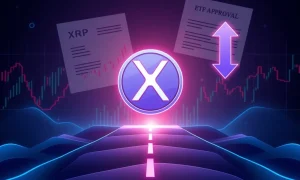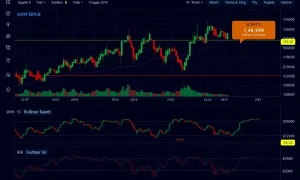The blockchain landscape continues evolving rapidly, mirroring Ethereum’s remarkable journey while introducing groundbreaking innovations. Modern blockchain projects now build upon Ethereum’s foundation while addressing its historical limitations through advanced architectures and real-world applications.
Ethereum’s Foundation and Modern Blockchain Evolution
Ethereum established the blueprint for smart contract platforms between 2015-2022. Consequently, it demonstrated both resilience and adaptability through various market cycles. However, emerging blockchain projects now leverage this foundation while implementing crucial improvements. These projects prioritize scalability and enterprise integration from their inception.
Modular Architectures Revolutionizing Blockchain Projects
Modern blockchain projects embrace modular designs that separate consensus from execution layers. This approach enables:
• Customized network solutions without full L1 development
• Enhanced scalability through specialized layer processing
• Reduced energy consumption via optimized architecture
Projects like Celestia and Polygon 2.0 exemplify this trend toward efficient, purpose-built blockchain infrastructure.
Real-World Asset Integration in Contemporary Blockchain Projects
Unlike Ethereum’s initial focus on digital assets, current blockchain projects emphasize real-world asset (RWA) tokenization. Major institutions now participate through tokenized bonds and property platforms. This shift provides tangible collateral and regulatory compliance frameworks absent in early blockchain development phases.
Investment Dynamics Across Blockchain Project Generations
Investor behavior has diversified significantly across blockchain project types. Approximately 30-35% of retail investors enter through speculative assets, while institutions pursue RWA platforms. Modern blockchain projects consequently cater to both demographics through varied risk profiles and investment structures.
Strategic Considerations for Blockchain Project Investment
Investors evaluating blockchain projects should consider three critical factors:
• Technical roadmap clarity and development progress
• Regulatory compliance and governance structures
• Real-world utility and adoption metrics
These elements differentiate sustainable projects from purely speculative ventures in the current market environment.
Future Outlook for Blockchain Project Development
The blockchain project ecosystem continues maturing beyond Ethereum’s original vision. Next-generation solutions focus on interoperability, scalability, and regulatory alignment. Furthermore, they integrate zero-knowledge proofs and modular designs to address historical limitations while expanding practical applications.
Frequently Asked Questions
How do modern blockchain projects differ from Ethereum’s early development?
Modern projects incorporate scalability solutions and compliance frameworks from inception, unlike Ethereum’s iterative approach to these challenges.
What makes modular architecture significant for blockchain projects?
Modular designs allow specialized network components that enhance efficiency, scalability, and customization options for specific use cases.
How does real-world asset tokenization benefit blockchain projects?
RWA tokenization provides tangible collateral, regulatory clarity, and bridges traditional finance with blockchain infrastructure.
What investment risks exist with emerging blockchain projects?
Risks include regulatory uncertainty, technological implementation challenges, and market adoption timelines despite advanced architectures.
How can investors evaluate blockchain project potential?
Evaluation should consider technical merit, team expertise, market fit, regulatory compliance, and real-world adoption metrics.
What role do zero-knowledge proofs play in modern blockchain projects?
ZKPs enhance privacy, reduce computational requirements, and enable scalable transaction processing while maintaining security standards.








